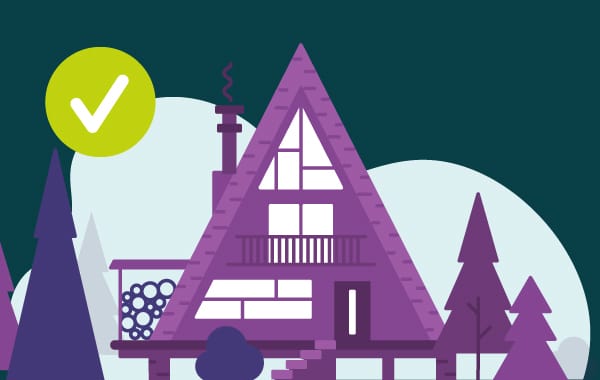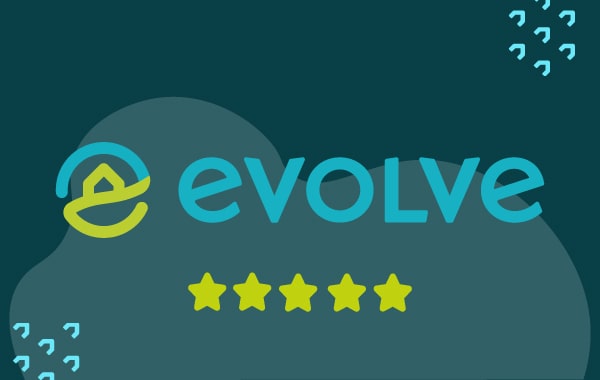How to Avoid Vacation Rental Scams and Book a Home with Confidence

Whether you want to visit the soft, sandy beaches of the Florida coastline or see the snow-capped Rocky Mountains in Colorado, vacation rentals continue to rise in popularity as they deliver unique and authentic experiences for adventurers.
In fact, we recently surveyed over 9,000 travelers and found 82% plan to book a vacation rental this year.
Unfortunately, this means there’s opportunity for scammers to take advantage of unsuspecting travelers. From understanding the different types of cons to learning how to avoid vacation rental scams entirely, these expert tips can give you peace of mind when booking amazing homes — so you can kick back, rest easy, and enjoy vacation worry-free.
Want to avoid fraudulent rentals and get the best nightly rates the simple way? Book a vetted, verified home directly on evolve.com.
In This Article:
Types of Vacation Rental Scams

Although there are thousands of legitimate vacation rental homes on the market, there’s also no shortage of scammer creativity when it comes to fraud. Here are common types of vacation rental scams to be aware of.
1. The Copycat Property Listing
With the copycat approach, scammers steal the photos and description of a legitimate listing to create what looks like a carbon copy of a property you could find elsewhere online. Copycat listings aren’t typically found on major marketplaces like Airbnb and Vrbo. Rather, they’re most common on minimally-regulated sites, like Craigslist. (One traveler even lost $20k with this type of vacation rental scam.)
2. The Entirely Fake Vacation Rental
This scam involves an imposter creating a property listing for a home that is either not actually for rent, or doesn’t even exist. These types of scams are most common on the same sites where you might find copycats. However, they occasionally sneak their way onto major marketplaces, too.
If a listing looks funny (one giveaway: a Google search of the address shows a different street view than what’s in the listing), someone may be trying to fool you.
3. The Real Listing with a Stolen Email Address
In some cases, scammers hijack the email accounts of real owners to intercept communications with guests. A phisher may have collected personal login information from an owner directly, or found another way to hack their accounts.
This type of vacation rental scam is potentially the most sophisticated and near-impossible to identify at the listing level. Instead, the alarm bells may sound when chatting with the faux owner (more on this below).
If you fall victim to any of these types of vacation rental scams, it’s important to report it immediately to either the site you are on (or the authorities) to help identify the scammer and seek resolution.
Major peace of mind: In addition to our thorough home vetting process, Evolve guests always have their personal data protected: We are PCI DSS certified and follow the National Institute of Standards and Technology (NIST) protocol for security controls. We also comply with the California Consumer Privacy Act, which ensures the protection of owner and guest information — all personally identifiable information (PII) is secure and encrypted.
How to Know If a Vacation Rental Is Legitimate

Now that you’re aware of different types of fraudulent listings, here’s exactly how to avoid vacation rental scams and book a real, authentic home.
1. Compare Listing Information Across Reputable Sites
It’s not uncommon for vacation rental owners to list on multiple marketplaces. (For example, Evolve-managed homes are listed on sites like evolve.com, Airbnb, Vrbo, Booking.com, and Google.) Because of this, you can search a home across multiple platforms and make sure the listing is consistent on each one. You should look at:
- Contact information
- Property photos
- Per night pricing (Note: Pricing can vary slightly site to site, but there shouldn’t be wild swings across them)
You also want to watch out for a heavy presence of typos or odd sentence structures. Poor language skills and repetitive or nonsensical messages are common with scammers.
2. Be Wary of Abnormal Communications or Requests
When evaluating whether the vacation rental you’re interested in is legitimate, pay attention to any communication you have with the owner. Again, typos and odd sentence structures are red flags. Any direct requests for personal information (like your credit card or social security number) outside of a secure payment system is also likely the work of a scammer.
3. Only Pay Using Secure Methods
You should never send a wire transfer, check, or use cash to pay for your reservation. The safest and most effective way to pay for a vacation rental is through a secure payment system offered in an app or on the website. These methods are typically encrypted and equipped with fraud monitoring.
When booking through Evolve, you can also rest easy knowing your payment does not get released to the owner until 48 hours after your check-in. We also use Stripe, a payment processing software that assigns a score to each payment method and calculates the likelihood of fraudulent activity. Any payments given a fraud-detection score above a specific threshold are flagged in our system and investigated.
In other words, booking a vacation rental with Evolve means you can confidently use your credit card to make a secure payment.
4. Read Recent Property Reviews
On well-known vacation rental marketplaces, you must have first been a guest to leave a review. (Guests can have anywhere from 14 days to several months following check-out to leave a review.) For this reason, it’s smart to sift through the reviews section of a listing and look for feedback on both the property itself and the host.
Proceed with curiosity — but not necessarily caution — if a listing has no reviews. The vacation rental industry is growing quickly, so it’s not uncommon for a new listing to have just entered the market. When this is the case, there should be indicators in the listing’s headline or description. All Evolve listings, for example, use the phrase “New!” in the headline for the first six months of their launch (or until the property has received five or more reviews).
Avoid Vacation Rental Scams with Evolve

The best way to steer clear of fraudulent vacation rentals and get the best nightly rates is to book directly on evolve.com. All of our homes are vetted and verified, so scams are never an issue for guests. You can rest easy knowing your peace of mind is our priority, and the home you booked is the home you’ll soon enjoy.
That means the only questions you really need to ask are how many bathing suits you should pack for your beach-lounging, or which book would pair nicely with your cozy, cabin escape.
Not sure where to travel next? From tiny houses and luxury dream homes to charming small towns and the best star-gazing spots, we’ve got plenty of ideas to inspire your next adventure.
